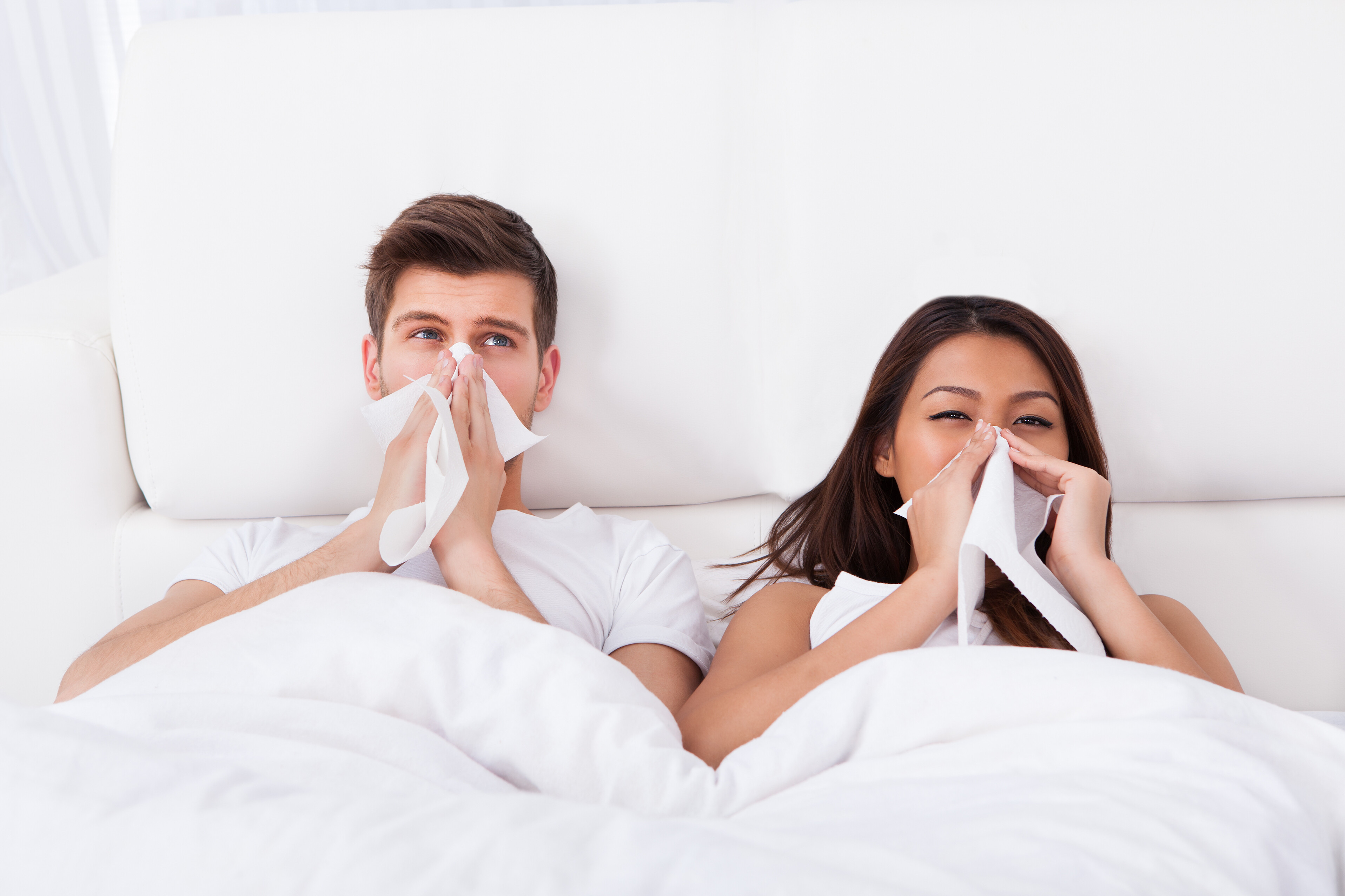
Fall doesn't just mark the arrival of stunning foliage, it's also the beginning of cold and flu season, which can last until early May. For some people, the transition from summer to fall also means getting hit with seasonal allergies, and with the additional concern of COVID-19, there's a lot of confusion about what certain symptoms indicate.
Below, Dr. Raghunandan Loganathan, a physician from Summit Health's Pulmonology team, answers some common questions you might have about the season's respiratory illnesses.
How do I tell if I have seasonal allergies, a cold, or the flu?
Dr. Loganathan acknowledges that it's sometimes difficult to distinguish between allergies and a cold. Some of the key signs of allergies are:
- Nasal discharge or stuffiness
- Postnasal drip
- Sneezing
- Itching of the eyes
- Headaches due to mucus build-up in sinuses
While the common cold often also has these symptoms, additional ailments that point to a cold include:
- Cough
- Chest congestion
- Low-grade fever
- Chills
- Body aches
Look out for these additional indicators of the flu:
- Shortness of breath
- High fever
- Chills
- Body aches
- Bone pain
- Nausea
Why is the flu considered more serious than a common cold?
"A common cold almost never requires hospitalization or going to the emergency room," says Dr. Loganathan. This is not always the case with influenza, especially if a patient has pre-existing conditions. If you suspect you may have the flu, you should consider getting evaluated by your doctor or an urgent care center.
I've never had allergies before, so I assume I have a cold. Is it possible to develop allergies as you get older?
"Yes, we can," says Dr. Loganathan. "We see patients who have had little or no symptoms related to allergies and asthma in the earlier part of their life but have more significant symptoms as they go along." Reasons for that include:
- Allergen exposure and interactions with your immune system
- Having little exposure to allergens as a child
- Relocating to a new city with different allergens
- New environmental exposures like mold, carpets, etc.
- Adopting a pet for the first time
My mucus is yellow. Does this mean that it's a cold rather than allergies?
It's a long-held myth that if your mucus has a yellow or green tinge then you definitely have a cold. "Many studies have shown that discolored phlegm doesn't necessarily mean that you have an infection." says Dr. Loganathan.
What if I'm worried that I have coronavirus?
"COVID-19 virus infection is in many ways indistinguishable from influenza, unless you get evaluated and have yourself tested," says Dr. Loganathan, pointing out respiratory symptoms such as fever, cough, and shortness of breath that occur with both viruses. "COVID-19 may have some unique symptoms like loss of smell, but I don't think that's necessarily enough to distinguish," he says. "If you have symptoms such as a fever, you should get tested at an urgent care."
How do I ensure I maintain good respiratory health?
Dr. Loganathan recommends three key things:
- GET your FLU shot
- Discuss and initiate smoking cessation strategies and do not vape
- Maintain good physical health through exercise and diet
He strongly emphasizes the importance of getting the flu shot. "We've already started administering flu shots in our offices, as well as our Summit Health Flu Clinics and CityMD locations. It's going to make a big difference for the entire community if people get the flu shot, and it is particularly important this year given the COVID-19 pandemic."
